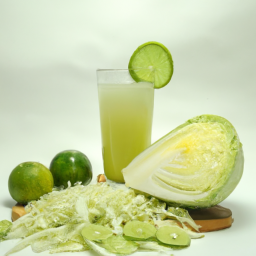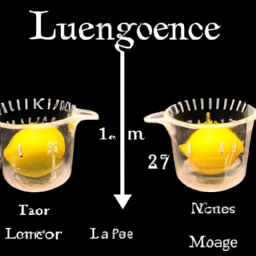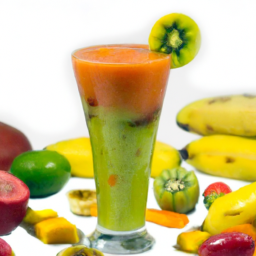If you suffer from ulcers, you understand the pain and discomfort they cause. You may have tried various treatments and medications. But have you considered incorporating cabbage juice into your diet?
Cabbage juice has been shown to be a natural and effective remedy for ulcers, but how much should you be drinking per day?
Before we dive into the recommended dosage of cabbage juice for ulcers, it’s important to understand what ulcers are and what causes them. Ulcers are open sores that develop in the lining of your stomach or small intestine. They can be caused by a variety of factors, including bacterial infections, the use of certain medications, and excessive alcohol consumption. Regardless of the cause, ulcers can be incredibly painful and can lead to serious complications if left untreated.
That’s where cabbage juice comes in as a potential remedy.
Understanding Ulcers and Their Causes
You may be surprised to learn that ulcers can be caused by anything from stress and spicy foods to alcohol and smoking, so it’s important to understand the root cause before deciding on a daily amount of cabbage juice.
Ulcers are sores that develop in the lining of the stomach or small intestine, and they can cause a great deal of discomfort and even bleeding.
The most common cause of ulcers is a bacterial infection known as Helicobacter pylori, but lifestyle choices can also play a role.
If you have an ulcer, it’s important to address the underlying cause before turning to cabbage juice as a remedy.
While cabbage juice has been shown to have anti-inflammatory and healing properties, it’s not a cure-all for ulcers.
Speak with your healthcare provider to determine the best course of treatment for your specific condition.
They may recommend a combination of medication, dietary changes, and lifestyle modifications to help alleviate your symptoms and promote healing.
Benefits of Cabbage Juice for Ulcers
When consumed regularly, cabbage juice can aid in healing stomach and intestinal lining. This is because cabbage contains compounds that can help soothe inflammation and reduce the amount of harmful bacteria in the gut.
Additionally, cabbage juice is high in vitamin C, which helps to boost the immune system and promote healing. One of the most significant benefits of cabbage juice for ulcers is its ability to reduce the amount of acid in the stomach. This can help to alleviate the pain and discomfort associated with ulcers.
However, it’s important to note that cabbage juice should be consumed in moderation, as too much can actually worsen symptoms. It’s generally recommended to drink 1/2 to 1 cup of cabbage juice per day, and to consult with a healthcare professional before making any significant changes to your diet.
Safe and Effective Dosage of Cabbage Juice
To ensure safe and effective consumption, it’s important to know the proper dosage of cabbage juice for promoting healing and reducing inflammation in the gut. The recommended amount is typically 1/2 to 1 cup of fresh cabbage juice per day. It’s best to start with a smaller amount and gradually increase the dosage over time.
It’s also important to note that while cabbage juice is generally safe, consuming too much can lead to adverse side effects such as bloating, gas, and diarrhea. It’s recommended to consult with a healthcare professional before starting a cabbage juice regimen, especially if you have any underlying health conditions or are taking medication.
With the right dosage and guidance, cabbage juice can be a helpful addition to your ulcer healing plan.
Potential Risks and Side Effects of Cabbage Juice
If you’re considering incorporating cabbage juice into your diet, it’s important to be aware of the potential risks and side effects that may occur. While cabbage juice is generally considered safe, consuming large amounts may lead to digestive issues such as bloating, gas, and diarrhea.
It’s recommended to start with a small amount, such as a quarter cup, and gradually increase the amount as your body adjusts. Another potential risk of cabbage juice is its high vitamin K content, which can interfere with blood-thinning medications such as warfarin.
If you’re taking these medications, it’s important to consult with your doctor before consuming cabbage juice regularly. Additionally, some individuals may be allergic to cabbage and should avoid consuming it in any form.
If you experience any adverse reactions after consuming cabbage juice, such as itching, swelling, or difficulty breathing, seek medical attention immediately.
Tips for Incorporating Cabbage Juice into Your Diet
One way to reap the potential health benefits of cabbage juice is by adding it to smoothies or using it as a base for salad dressings. This can be a great way to incorporate cabbage juice into your diet without having to drink it straight up. You can also try mixing it with other juices or adding it to your favorite soup recipe.
Another tip for incorporating cabbage juice into your diet is to drink it in the morning on an empty stomach. This can help with digestion and ensure that your body is able to absorb all the nutrients from the juice. Start with a small amount, such as ¼ cup, and gradually increase the amount as your body adjusts.
It’s important to remember that everyone’s body reacts differently, so listen to your body and adjust accordingly.
Conclusion
Congratulations! You’ve learned about the benefits of cabbage juice for ulcers and how much you should consume for optimal results. Ulcers can be caused by a variety of factors such as stress, alcohol, and certain medications.
However, incorporating cabbage juice into your diet can help alleviate symptoms and promote healing. It’s important to start with a small dosage and gradually increase to avoid any potential side effects.
As always, consult with your healthcare provider before making any significant changes to your diet. With these tips in mind, you can safely and effectively incorporate cabbage juice into your daily routine to improve your overall health and well-being.









